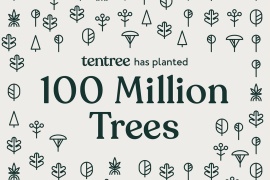
Heading back to school gives young adults an opportunity to find a cause that is near and dear to them. What could be a better cause than the environment? More importantly, the food we consume and the sustainability of human life. Here at Sporting Life, our attention has recently been turned to the plight of the bees.
Did you know…
- It requires 556 worker bees to gather a pound of honey.
- Bees fly more than once around the world to gather a pound of honey.
- A single beehive can make more than 100 pounds of extra honey. The beekeeper only harvests the extra honey made by the bees.
- They’re smart: Scientists have discovered that bees take the shortest possible route between flowers. Instead of flying randomly from flower to flower, bees get it all done as efficiently as possible.
- 1/3 of the food crops humans eat everyday require bees and other pollinators to successfully produce a crop.
- The rusty-patched bumble bee, once abundant in southern Ontario and now almost extinct and officially designated as endangered.
- Six more bees have declined to such an extent that scientists have advised the federal Minister of Environment to take steps to protect them.
- Colony failures can be caused by a number of factors including: starvation, weak honey bee queens, pesticides, diseases and pests.
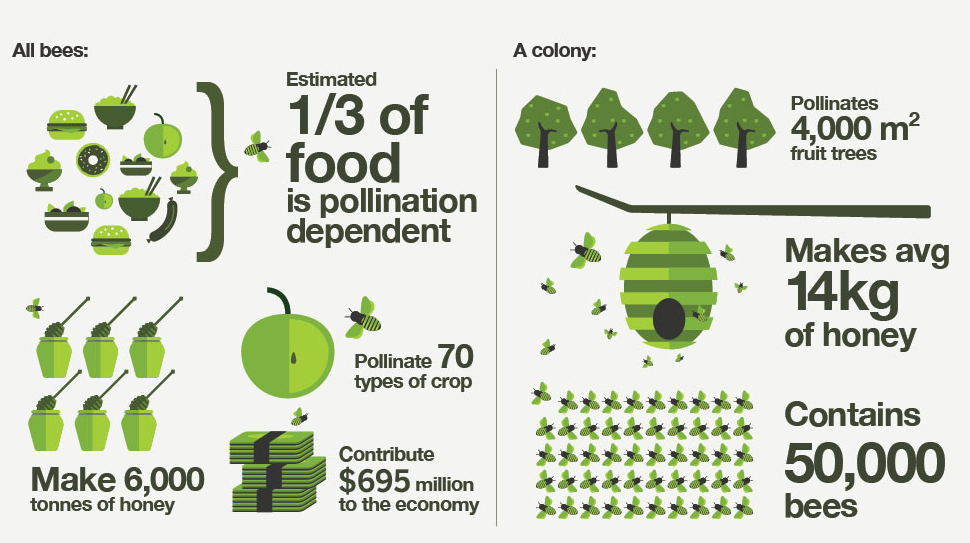
Bees seem pretty important, huh? Without them, we wouldn’t have 1/3 of the food that we eat every day. For the sake of not only human nourishment but the survival of our environment and local ecosystems, we need to take steps to save the bees!
5 Ways to Save the Bees
Educate Yourself
Perhaps the easiest thing you can do to help the bees is to educate yourself. Everyone knows that knowledge is power – learn about the struggling honey bee population, educate those around you, and get involved! For starters – watch this video for a new perspective on bees and how diverse they are:
Buy Local Honey
By purchasing local honey, you are supporting beekeepers and bees in your area. As we have learned, this directly helps the environmental health of your neighbourhood! Unlike pasteurized honey, raw honey comes straight from the hive and is unheated, unpasteurized and undiluted, which means it retains all the antioxidants, vitamins, minerals and delicious flavor. Eating local raw honey is an easy way to stay healthy and support your community.
Install a Hive
Did you know that you can have your very own bee hive at your home or business? Companies like Alvéole make urban beekeeping possible. We have two hives on the roof of our Yonge Street location! By installing a hive, you are not only inviting bees to pollinate your neighbourhood, but you are able to harvest your very own honey. The extraction is done artisanaly at Alvéole’s honey house, and you are welcome to do whatever you please with your honey – keeping the locally sourced cycle alive!
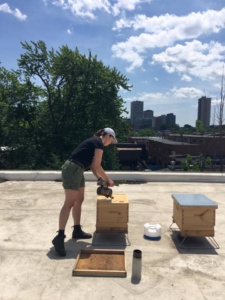
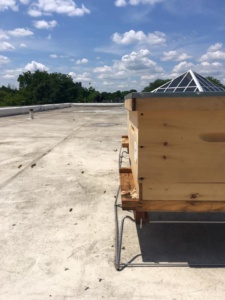
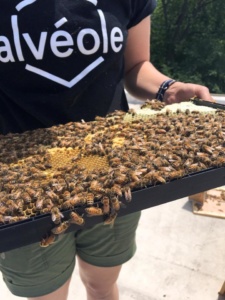
Go Organic
Pesticides are no good for humans and bees alike. Pesticides used on plants linger in the nectar and weaken bees’ immune systems. Organic is the way to go! Keep an eye out for labels that indicate that the food was grown without pesticides, or buy your produce from a local farmer’s market. This will ensure that your food is bee-friendly, and you are supporting your community in the process.
Plant For Pollinators
Bees rely on pollen and nectar to survive – if there is a lack of supply nearby, the bees can starve. An easy way to help your local bee population is to plant a pollinator-friendly garden in your yard. You can find a list of plants for pollinators here, but even simple herbs such as sage or rosemary are loved by bees!
As you head back to school this fall, think about the ways you can make a difference in your community.



